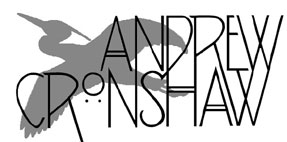
- Andrew Cronshaw website -
- Andrew Cronshaw MySpace -
- Cloud Valley Music website -
- Andrew Cronshaw website -
- Andrew Cronshaw MySpace -
- Back to Reviews Introduction page -
Written in Folk Roots issue 137, 1994
MÖLLER, KÄLLMAN, RINGDAHL
Vind
Xource XOUCD 106 (1994)
ABSOLUT FOLK (KEIJSER, ROSÉN, WESTLING)
Musiques Traditionelles de Suède
Silex Mosaique Y225215 (1994)
NORRLÅTAR
Ravn
Xource XOUCD 105 (1994)
GARMARNA
Vittrad
Massproduktion CD-61 (1994)
One of the greatest strengths of what's been happening in Swedish roots music in
recent times is that the exploration of new ideas has been, and still is, led by
musicians with deep understanding, and skill in the playing, of the traditional
musics, who also have the musical inquisitiveness to investigate other
approaches.
Ale Möller, Sten Källman and Thomas Ringdahl were
members of Filarfolket. For all three there have been many separate projects
before and since that; for this one they come together in an album devoted in
equal parts to the music from two fiddlers: the late Röjås Jonas from Dalarna
and the still active Hans W.Brimi from Gudbrandsdalen in Norway.
As its title hints, there are no fiddles on
Vind, though; the instrumentation is largely Möller on trumpet or
flügelhorn, Källman on baritone sax and Ringdahl on soprano, with occasional
flutes from the sax players, and harmonica, säljflöyt, jews-harp or shawm from
Möller. All melody instruments, weaving around one another in the compelling,
intricate rhythms and tunes that, even when occasionally slow, always have the
dance in them, and it's a dance more of the air than of the ground. This music
may have arisen on fiddle, but here's proof it doesn't depend on that
instrument; it retains its identity and intelligibility but changes its timbre
and accent, as does any language between people. And, as with language, the more
you listen the more you understand.
Saxes have played a considerable part in the new
Swedish music, in bands such as Filarfolket, Arbete och Fritid and Groupa, and
indeed combined forces from those groups formed the all-sax band Bröderna Blås.
Three members of that constitute the line-up on Musiques Traditionelles de
Suède. Here Anders Rosén plays his main instrument, fiddle, with Roland
Keijser on soprano sax, and Kjell Westling playing clarinets. The material is a
collection of some of the most distinctive and popular tunes from various
Swedish traditions, including six from 19th century Malung fiddler Lejsme Per
Larsson via his grandson Herman Strömberg, and one from Norway. As on Vind,
the instruments blend and weave very naturally, in some places the high notes of
the reeds having a sound so close to the female vocalising that's sometimes a
feature of this music that I had to check the sleeve to be sure there wasn't a
guest singer.
A voice which could never be confused with the
liquid high tones of clarinet or soprano sax is that possessed by Hasse Alatalo
of Norrlåtar, a very different band from Norrbotten, north Sweden. The region
adjoins Finland, and Norrlåtar's music reflects that in form and also in the
language of Alatalo's wonderfully gruff vocals. The band has been in existence
20 years, and their last album En Malsvelodi remains for me a major source of
inspiration and amusement. This one, Ravn, is less outrageous; the press
release describes it as "finding their way back to a simpler expression and
nearer to their traditional folkmusic roots" (what, like Bob Dylan? - no, let's
not start that again). If less wildly varied, it's still quirky and likeable,
strong unusual instrumental textures of fiddles, accordeon, brass, electric
guitar and more, lurching occasionally into eccentric group vocals or Alatalo's
lead, over meaty non-standard drumming.
Garmarna is a young band from Sundsvall, on the
coast about two-thirds of the way down from Norrbotten towards Stockholm. Its
sound too is underpinned by hefty drumming, in the sort of deep,
toms-rather-than-snare style that's becoming a characteristic of a sort of
Swedish music that one might describe as folk-rock were that not to have other
associations. Instrumentation is strong on abrasive and gutty sounds of
hurdy-gurdy, fiddle and samples, and so it's hard not to make reference to
Hedningarna (though of course Garmarna's songs, featuring singer-fiddler Emma
Härdelin, are all in Swedish, unlike Hedningarna's Finnish/Swedish mix). But
this is all part of a trend in Swedish music (with some of its origins in the
Swedish Music Movement of the 70s and the widespread approach of "dig where you
stand", as Ale Möller described it), which includes the evolution of forms with
the live atmosphere and youth appeal of rock but with Nordic identity and roots.
Within that already fresh and distinctive territory Garmarna seems to be
developing its own character, probably with more individuation to come.
Following last year's short 7-track CD debut, Vittrad is a confident,
strong first full album which is already making waves in Sweden (and growing
ripples spreading to Britain) from a band which appears destined to stir up some
more.
© 1994
Andrew Cronshaw
You're welcome to quote from reviews on this site, but please credit the writer
and fRoots.
Links:
fRoots - The feature and
review-packed UK-based monthly world roots music magazine in which these reviews
were published, and by whose permission they're reproduced here.
It's not practical to give, and keep up to date,
current contact details and sales sources for all the artists and labels in
these reviews, but try Googling for them, and where possible buy direct from the
artists.
CDRoots.com in the USA, run by
Cliff Furnald, is a reliable and independent online retail source, with reviews,
of many of the CDs in these reviews; it's connected to his excellent online magazine
Rootsworld.com
For more reviews click on the regions below
NORDIC
BALTIC
IBERIA (& islands)
CENTRAL & EASTERN EUROPE, & CAUCASUS
OTHER EUROPEAN AMERICAS OTHER, AND WORLD IN GENERAL
- Back to Reviews Introduction page -